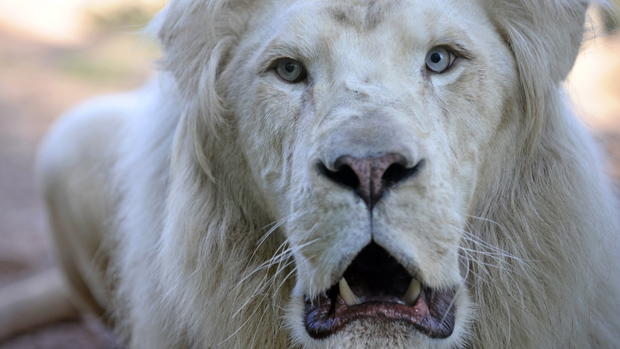'Mutant' animals being bred for hunters to kill in South Africa
Wealthy hunters pay a premium to shoot 'Frankenstein freaks of nature' like white lions and golden gnus

A free daily email with the biggest news stories of the day – and the best features from TheWeek.com
You are now subscribed
Your newsletter sign-up was successful
Ranchers in South Africa are breeding "mutant" animals with exotic colours and longer horns to attract wealthy hunters who are willing to pay a premium to kill them.
This is part of "the latest craze in South Africa's $1bn high-end big-game hunting industry", reports Bloomberg.
Animals such as white lions and golden gnus, which are rarely seen in nature, are being bred especially for their unusual appearance.
The Week
Escape your echo chamber. Get the facts behind the news, plus analysis from multiple perspectives.

Sign up for The Week's Free Newsletters
From our morning news briefing to a weekly Good News Newsletter, get the best of The Week delivered directly to your inbox.
From our morning news briefing to a weekly Good News Newsletter, get the best of The Week delivered directly to your inbox.
"We breed them because they’re different," said rancher Barry York. "There'll always be a premium paid for highly adapted, unique, rare animals."
Africa Hunt Lodge, a company based in the US, offers rich hunters package tours to South Africa, where they are charged up to $30,000 to kill a white lion and $49,500 for a golden gnu.
York argues that, while profit making is the main aim of his ranch, "conservation is a by-product of what I do". Breeders argue that the number of wild animals in South Africa has increased alongside the popularity of hunting big game. Ironically, private hunting ranches were credited with saving the rhinoceros from extinction in the 1960s.
But critics of genetic breeding are unconvinced. "What's happening now is farming. It's not conservation," said Ainsley Hay, manager of the Wildlife Protection Unit of South Africa’s National Society for the Prevention of Cruelty to Animals.
A free daily email with the biggest news stories of the day – and the best features from TheWeek.com
"A white springbok will not contribute to the springbok population because it’s a mutant," she said. Animals with these recessive genes have extremely low survival rates in the wild, as they are easier for predators to spot and often develop skin diseases and cancers.
Animal rights campaigners have found unlikely allies in local hunters, who are also opposed to the practice. The South African Hunters and Game Conservation Association has called on the government to regulate such breeding as it interferes with natural selection and pushes up the price of hunting.
"The animals are Frankenstein freaks of nature," says Peter Flack, a hunter and conservationist. "This has nothing to do with conservation and everything to do with profit."